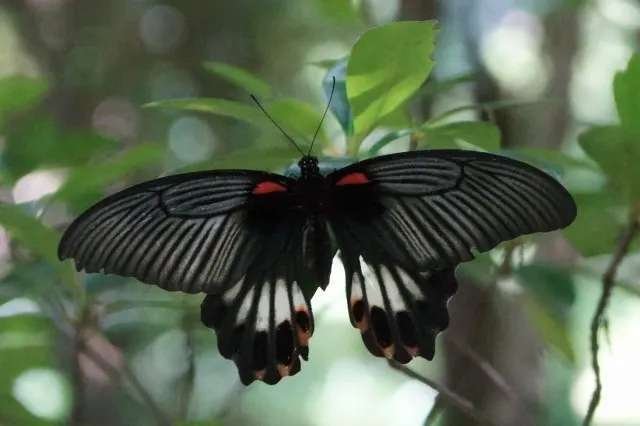
It is because of anti-Japanese tribalism that all kinds of lies are created and spread. It will become backward rather than advanced. A culture of lies, politics, academics, and judicial decisions will lead this country to ruin.
I sent it out on 2019-07-30.
It's a natural consequence that the Asahi Shimbun is a traitorous newspaper company that has allowed these Korean universities to study in-house.
First, when they try to study abroad in Korea, it is correct to say that they are people who do not understand anything.
The following is what I wrote in a chapter titled "I was surprised that he was a professor at Ritsumeikan University, but I was even more surprised and dismayed that his number one disciple was Tetsuya Hakoda" in June 2017.
Preamble omitted
Yoshifumi Wakamiya (who even served as editorial director! ), Harufumi Kiyota, Takashi Uemura, Tetsuya Hakoda, and many others have studied internally at Yonsei University.
It is no exaggeration to say that Alexis Daden is the epitome of vulgarity and evil (even her facial expression shows the stupidity and narrow-mindedness of her twisted ideas).
They organized that festering "International Tribunal for Women War Criminals" (Dec. 7-12, 2000).
The fact that the queen of this Korean-originated anti-Japanese propaganda in the US is a university professor is also truly appalling...
It is long overdue that the world should know that she is a demonstration of the incompetence and stupidity of the race of university professors. She also studied at Yonsei University.
That's why I noticed it immediately. So, I immediately realized that Yonsei University is the home of anti-Japanese propaganda and one of the bases of the KCIA's dark activities.
Afterword
In light of the facts pointed out by Professor Lee, it is not such a big deal that all of the universities in Korea are made up of anti-Japanese propaganda.
The stupidity of the Asahi Shimbun, the CDP, and others who have continued to promote such a country (although not a few idiots such as Shigeru Ishiba are in the LDP) is to peak.
The following is from the "Monthly Report on the Korean Peninsula," serialized by Nishioka Tsutomu, one of the world's leading experts on the Korean Peninsula.
The title of this month's issue is "Why Koreans are Liars.
It is a must-read article not only for the Japanese but also for people worldwide.
The other day, I criticized Toru Hashimoto, a lawyer who used to be a member of the Japan Federation of Bar Associations (JFBA), a hive of anti-Japanese leftists, for his outrageous rhetoric about Japan and South Korea on a breaking news program, calling him no better than a toilet paper, in line with his past comments.
Preamble omitted
Korean Universities are Factories of Lies
In the meantime, sensible scholars in Korea are engaged in a fierce battle in the field of discourse.
I am writing this article in Seoul, Korea.
Professor Lee Young-hoon and his colleagues, who are representative of the sensible scholars who criticize the anti-Japanese movement in South Korea, published a book titled "The Roots of the Korean Crisis: Anti-Japanese Tribalism" and held a book launch on July 17.
In the book, he explains why he uses the unfamiliar term "anti-Japanese nationalism" instead of "anti-Japanese nationalism," saying, "Korean nationalism is comparable to the nationalism that emerged in the West. There is no category of free and independent individuals in Korean nationalism. The Korean nation is a group, an authority, and a status. So it is more like a tribe."
He then makes a boneheaded self-criticism, saying that Korean historiography is a breeding ground for lies and that such education has led Koreans to tell only lies.
"I believe that this country's lying academics are the most responsible for the fact that its people routinely lie and its politicians use lies as a means of political struggle.
History and sociology in this country are hotbeds of lies.
Universities in this country are factories of lies. I am proud to say that it is not a big mistake to say so.
Since the 1960s, 60 years have already passed since then.
That's why, in the 2000s, every citizen and every politician has been lying with impunity.
He then went on to list the lies in his field of study, Korean history.
He then went on to list the lies of Korean history, his field of study, "The list of lies in Korean history from ancient to modern history is endless.
The lies are rampant, mainly about the history of Japan's domination of the region in the 20th century.
I will list only a few that I have refuted in this book.
The textbook's description that the Governor-General took 40% of the nation's land as state land through the land survey project was a bogus novel.
The textbook's claim that it shipped rice from colonial Korea to Japan was the product of ignorance.
The claim that Japanese imperialists mobilized Koreans as laborers and abused them as enslaved people was malicious fiction.
The march of lies culminated in the issue of the Japanese comfort women.
The common belief that the military police and police abducted virgins from the streets or took women from the laundry and dragged them to comfort stations was a complete lie that had never been discovered in a single case.
After criticizing historiography to this extent, he thoroughly criticizes the Supreme Court's wartime workers' compensation ruling last October, claiming that the lie had spread to the courts.
"It's already been 60 years since false academics wrote false history and taught it to the younger generation. It's not so strange that the judicial branch of this country makes wrong judgments since the age that grew up with this education has finally become Supreme Court justices.
The Negligence of the Supreme Court Justices
I want to introduce the central part of Prof. Lee's criticism of the ruling, as it is a little long, but it concerns the cause of the current deterioration of Japan-Korea relations.
"Let's talk about the Supreme Court's decision at the end of October 2018 to require Nippon Steel Corporation, which took over the company, to pay 100 million won each to four people who worked for Nippon Steel before it was liberated from Japanese rule.
The plaintiffs filed the lawsuit almost 20 years ago, and I believe they were the ones who initially went to Japan to file the lawsuit.
The persistence of the plaintiffs to win the case in the end, despite losing many times, is quite impressive.
What is the substance of this persistence?
Anyway, the Supreme Court ruled on the premise that Japan's rule over Korea was illegitimate and that it had mobilized Koreans to Japan for the war of aggression and abused them as enslaved people without paying them a proper monthly wage.
The text of the Supreme Court's decision begins with a description of the "basic facts" of the case.
When I read that part, my impression was, in a word, "This is a lie."
I am not going to argue about the legal reasoning of the judgment.
I am not a lawyer.
I am not a lawyer, and my judgment only focuses on one thing.
That "basic factual information" is not valid or, more likely, false.
The Supreme Court did not examine whether the plaintiff's allegations were true.
I cannot find any traces of such in the text of the decision.
I want to ask our country's high and mighty Supreme Court justices: "Is there any possibility that this is a lie? "
In September 1943, two of the four plaintiffs were recruited to work as trainers at Osaka Works. Nippon Steel forcibly saved a large portion of their monthly wages and had the dormitory prefect keep their bankbooks and personal seals, but the prefect never returned the money until the very end.
It is the primary content of the damage the plaintiff claims to have suffered.
As a historian, I am well aware of this fact.
I have heard of similar cases from many people.
The two plaintiffs were most likely minors at the time, as the verdict suggests.
The prefects were not employees of Nippon Steel but instead the owners of the lodging houses and dormitories where the laborers stayed in groups, most likely Koreans.
They were usually Koreans because only then could they communicate and control the situation.
The housemaster later returned to Wonsan with the plaintiff.
This fact supports the following supposition.
The housemaster may have been the guardian or protector of the plaintiff who accompanied him from the time of his departure.
My argument is as follows.
The claim that Nippon Steel did not pay the wages to the plaintiff is not valid.
The text of the judgment itself, which talks about forced savings, proves this point.
The housemaster is the culprit if he does not communicate the wages to the plaintiff.
The housemaster may have sent the monthly salary to the plaintiff's parents' house instead of the minor plaintiff.
In short, the case is a civil case between the plaintiff and the housemaster.
These are my findings after reading the judgment.
But did the Supreme Court summon the prefect to investigate?
The housemaster should have died a long time ago.
If that is the case, can the lawsuit stand?
Let me make my point clear.
I do not deny the plaintiff's allegation; I cannot confirm whether it is true.
It is the truth.
Even though this is the only fact known, the Korean Supreme Court held Nippon Steel responsible.
Supreme Court justices are not historians.
They are merely lawyers who know nothing about the realities of the wartime period.
They should have called the relevant experts to hear their testimony if that were the case.
However, they were so ignorant of the reality that they did not even feel the need to do so.
They did not doubt the plaintiff's likely false claims.
They did not question the plaintiffs' likely false claims because they, too, had been taught to lie from an early age."
I am impressed by Professor Lee's courage and conscience in making such a calm and factual criticism of the anti-Japanese verdict in a speech forum using his name.
It is said that 18,000 copies of "Anti-Japanese Tribalism," which Professor Lee and others wrote with the desperate thought that it would destroy the country if they did not fight lies, were sold out in 10 days and printed an additional 10,000 copies.
Professor Lee explained his tragic motivation for writing "Anti-Japanese Racialism" as follows.
"It is because of anti-Japanese tribalism that all kinds of lies are created and spread. It will become backward rather than advanced. A culture of lies, politics, academics, and judicial decisions will lead this country to ruin. This book is my all-out assault on anti-Japanese tribalism and its massive cultural power camp."
We will continue to watch and see whether the battle of Professor Lee and others in this arena of discourse will change Korean society.
This article continues.

この記事が気に入ったらサポートをしてみませんか?
